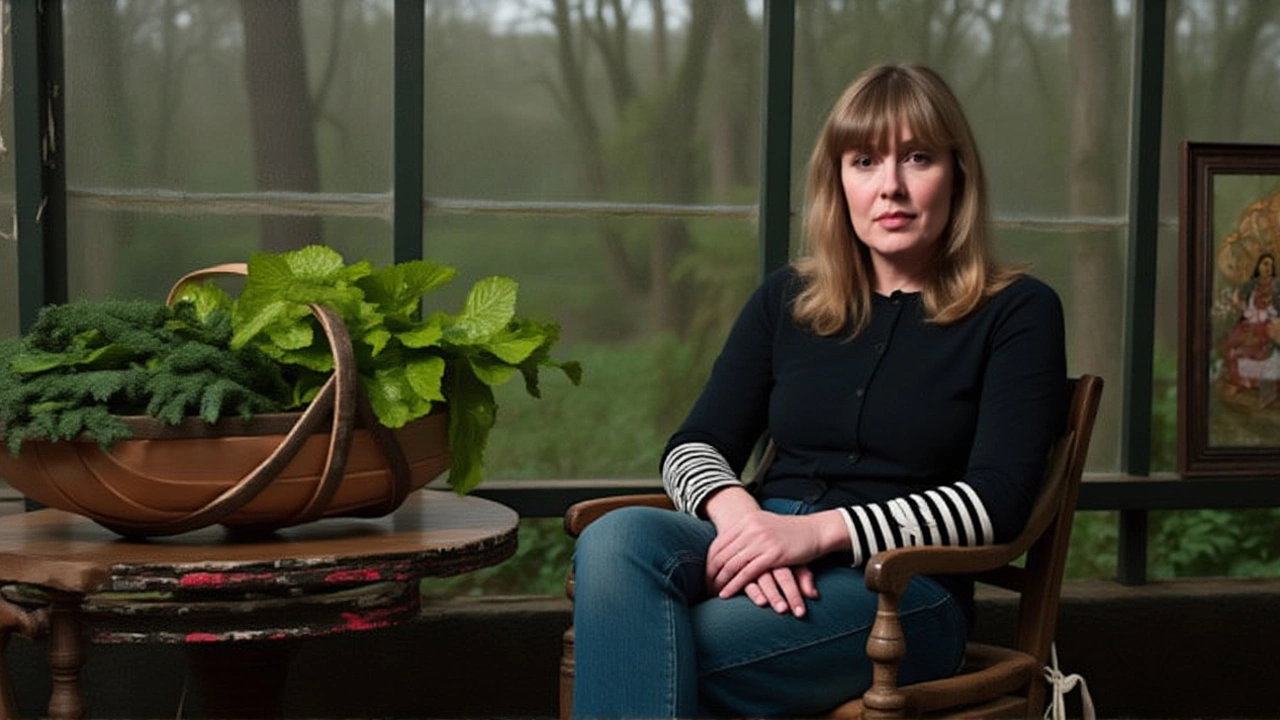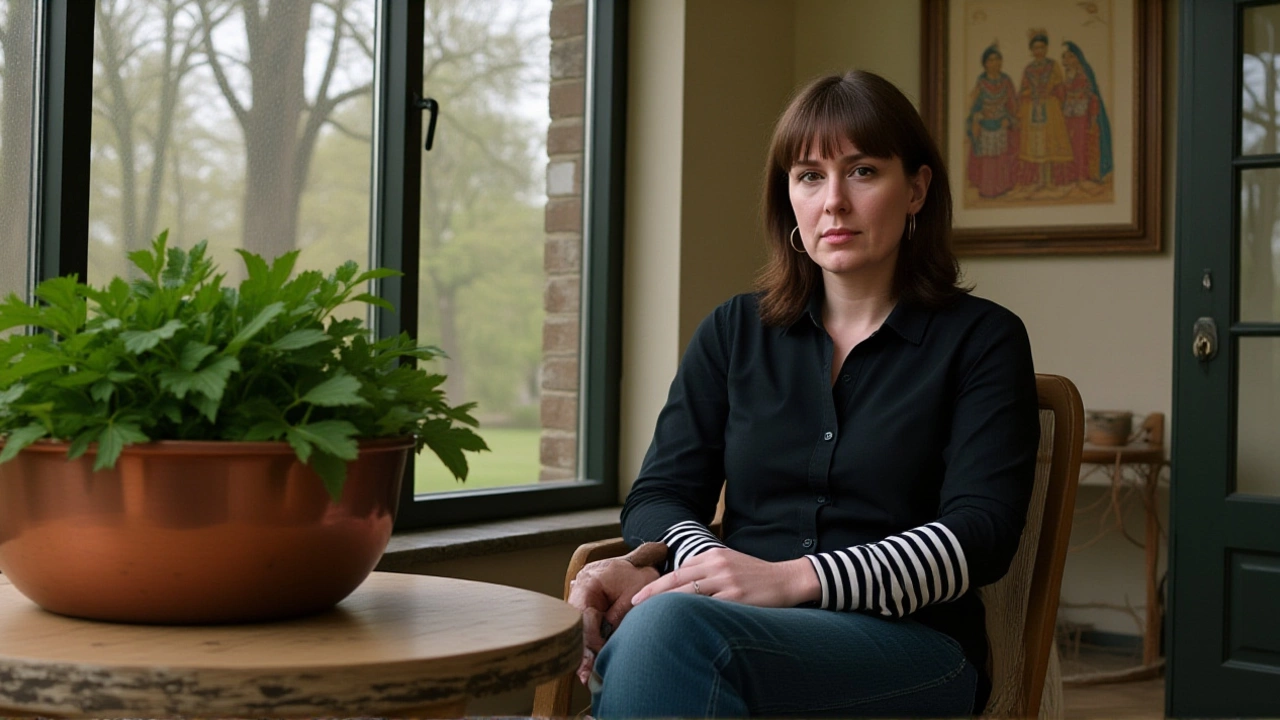Skye Gyngell, Australia’s Only Female Michelin-Starred Chef, Dies at 62
 Nov, 24 2025
Nov, 24 2025
The culinary world lost one of its most quietly revolutionary voices when Skye Gyngell, the first and only Australian woman to earn a Michelin star, passed away at age 62 in London on 22 November 2025. She died after a hard-fought battle with Merkel-cell carcinoma, a rare and aggressive form of skin cancer. Her death, confirmed by multiple sources including 7NEWS Australia, sent ripples through the global food scene—not just because of her accolades, but because of the radical philosophy she brought to fine dining.
A Chef Who Rejected the Spotlight
Born on 6 September 1963 in Sydney, Gyngell was the daughter of Bruce Gyngell, the man who famously said, “Good evening, and welcome to television” on Australian TV’s first broadcast in 1956. But while her family name carried media weight, Skye carved her own path—in kitchens, not studios. After training in France, she moved to Britain and quickly became known not for flamboyance, but for restraint. At Petersham Nurseries Café, which opened in 2004 in the leafy Richmond village of London, she refused to play by the rules of traditional fine dining. She called it “the antithesis of a West End restaurant.” The café, nestled within the grounds of Petersham House, served dishes built around ingredients plucked from the nursery’s own gardens. No velvet curtains. No starched napkins. Just fresh produce, simple preparations, and quiet confidence. And yet, in the 2011 Michelin Guide—announced in October 2010—Petersham Nurseries Café earned its star. Gyngell became the first Australian woman to do so. And then, she walked away.The Star That Felt Like a Curse
Eight years after opening, she left Petersham Nurseries Café in 2012. In interviews, she called the Michelin star a “curse.” “If I ever have another restaurant,” she once said, “I pray we don’t get a star.” The pressure, she explained, was crushing. The kitchen was tiny, the space intimate, and the expectations—driven by the star—felt alien to her vision. “We were cooking out of a garage,” she told The Guardian in 2013. “The star didn’t make us better. It made us tired.” Her words sparked debate. Many chefs saw her as a traitor to the profession. Others, especially younger cooks, saw her as a rebel who refused to let accolades dictate authenticity. She later clarified she regretted the harshness of her statement—but stood by her core belief: that food should nourish, not intimidate.A Legacy Written in Seasonal Ingredients
Gyngell’s impact went beyond one restaurant. She helped pioneer the “garden-to-plate” movement in the UK, long before it became a buzzword. Her menus changed daily based on what was ripe, what was local, what was fleeting. She didn’t chase trends; she chased time. Her 2011 pop-up with Cloudy Bay, the New Zealand winery, was a masterclass in pairing delicate flavors with seasonal produce—no foams, no deconstructions, just clarity. Tributes poured in after her death. Jamie Oliver called her “an amazing woman, incredible cook and kind-hearted person.” British baker Ravneet Gill remembered her warmth and honesty. “She never pretended to be something she wasn’t,” Gill wrote. “That’s rare in this industry.”
What’s Lost—and What Remains
Her death comes at a time when the culinary world is grappling with burnout, overwork, and the myth of the “tortured genius chef.” Gyngell’s life was a quiet rebuttal to all of it. She never sought fame. She didn’t appear on reality TV. She didn’t write a bestselling memoir. She cooked, she listened, she adapted. And in doing so, she redefined what excellence could look like. The Michelin Guide, now 125 years old, still awards stars based on technique, consistency, and creativity. But Gyngell’s legacy reminds us that the most enduring restaurants aren’t the ones with the most stars—they’re the ones that make you feel something. At Petersham Nurseries Café, that feeling was peace.As of 2025, no memorial service has been announced. But in kitchens across Britain, from London to Cornwall, chefs are quietly cooking with more care, more patience, and more honesty—just the way she did.
Frequently Asked Questions
Why was Skye Gyngell’s Michelin star so significant?
She was the first—and remains the only—Australian woman to receive a Michelin star, a distinction earned in 2011 at Petersham Nurseries Café. At the time, fewer than 10% of Michelin-starred chefs in the UK were women, and none were Australian. Her win broke two barriers: gender and nationality, making her a symbol of quiet, grounded excellence in a world obsessed with spectacle.
What was unique about Petersham Nurseries Café?
Unlike traditional fine dining spots, Petersham Nurseries Café was set in a working nursery with no formal reservations, no menu, and a kitchen so small it resembled a garage. Gyngell sourced nearly everything from the on-site gardens and local farms, changing dishes daily. The focus was on seasonality, not luxury—a radical idea in 2004 that later became a global trend.
How did her background influence her cooking?
Growing up in Australia with a media mogul father, Gyngell was exposed to performance and spectacle early. But she rejected it. Her cooking was the opposite: untheatrical, intimate, and deeply personal. She once said her Australian upbringing taught her to value space and silence—qualities she carried into her kitchens, where noise and pressure were minimized.
What is Merkel-cell carcinoma, and why was it so deadly in her case?
Merkel-cell carcinoma is a rare, aggressive skin cancer with a 60% five-year survival rate in early stages. But when it spreads—especially to lymph nodes or organs—prognosis drops sharply. Gyngell’s case was described as aggressive, with reports indicating it had metastasized before treatment could fully contain it. Fewer than 3,000 cases are diagnosed annually in the U.S., making awareness and early detection critical.
Did she ever plan to open another restaurant?
She considered it, but only under strict conditions: no Michelin aspirations, no pressure to expand. In a 2018 interview, she said she’d rather teach and write than run a busy kitchen. Her cookbook, Lightness, published in 2016, became a cult favorite among chefs seeking calm in chaos. She never returned to full-time restaurant work.
How is she remembered today by the culinary community?
She’s remembered not as a star-chaser, but as a truth-teller. Young chefs now cite her as inspiration for rejecting burnout culture. At Petersham, the café still operates with her ethos intact—no star, no hype, just seasonal food served in a garden. Her absence is felt, but her principles live on in the quiet corners of kitchens where authenticity still matters more than accolades.